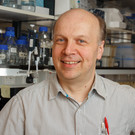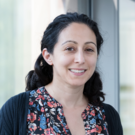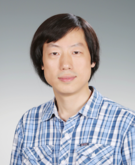Events
Apr 22 - May 27, 2021
Seminar Series on Human Embryonic Development and Developmental Genomics
School of Biomedical Sciences is pleased to invite you to join the Seminar Series on Human Embryonic Development and Developmental Genomics as follows:
Date: Thursday, April 22 & 29, May 20 & 27, 2021
Time: 5:00 pm
Format: Conduct via ZOOM
ZOOM Link: https://bit.ly/3u863VU
Meeting ID: 959 0000 8312
Passcode: 504000
|
Date |
Title of Talk |
Speaker |
|---|---|---|
|
Thursday, 22 April, 2021 |
Mapping Early Organogenesis at Single Cell Resolution |
Professor Bertie Göttgens Wellcome and MRC Cambridge Stem Cell Institute, University of Cambridge, UK |
|
Thursday, 29 April 2021 |
Genetic approaches to study early lineage specification in human embryos |
Professor Kathy Niakan Human Embryo and Stem Cell Laboratory, The Francis Crick Institute, London, UK |
|
Thursday, 20 May 2021 |
Decoding the mechanisms of human development and diseases by single cell genomics approaches |
Professor Fuchou Tang Beijing Advanced Innovation Center for Genomics, College of Life Sciences, Peking University, Beijing, China |
|
Thursday, 27 May 2021 |
Cardiac Cartography: mapping the emergence of cellular diversity in the human heart |
Professor Shankar Srinivas Department of Physiology, Anatomy & Genetics, University of Oxford, UK |

Professor Bertie Göttgens
Wellcome and MRC Cambridge Stem Cell Institute, University of Cambridge, UK
Title: Mapping Early Organogenesis at Single Cell Resolution
Abstract: The generation of cellular diversity is a hallmark of all metazoan life. Across the animal kingdom, gastrulation represents a key developmental event during which embryonic pluripotent cells diversify into lineage-specific precursor cells that will generate the adult organism. We have generated the transcriptional profiles of single cells from mouse embryos collected at 13 sequential time-points ranging from 6.5 to 9.5 days post-fertilisation, thus covering the critical phases of gastrulation and early organogenesis. We have complemented this expression dataset with single cell ATAC-Seq data for E8.25, and have also developed a new pipeline for functional analysis of key regulatory gees, based on mouse chimaera technology coupled with single cell RNA-Seq. I will report our efforts to reconstruct a molecular map of cellular differentiation from pluripotency towards all major embryonic lineages, with a particular focus on early development of mesodermal lineages, including the blood and endothelium.
Biography: Bertie Göttgens graduated from Tübingen University in 1992 with a degree in biochemistry. He received his DPhil in biological sciences from the University of Oxford in 1994 and then proceeded to a post-doc position in the Department of Haematology, University of Cambridge, between 1994-2001.
Between 2002-2007 he was a Leukaemia Research Fund Lecturer in the Department of Haematology, Cambridge. He was then a University Lecturer, and subsequently a Reader in Haematology, between 2007-2011.
Since October 2011, Bertie has been Professor of Molecular Haematology, University of Cambridge.

Professor Kathy Niakan
Human Embryo and Stem Cell Laboratory, The Francis Crick Institute, London, UK
Title: Genetic approaches to study early lineage specification in human embryos
Abstract: During preimplantation development human embryos are comprised of pluripotent embryonic cells, which eventually form the fetus, and extra-embryonic cells, which contribute to the placenta and yolk sac. The central question we address is what are the molecular mechanisms that regulate these early cell fate choices in human embryos. We are using CRISPR/Cas9-mediated genome editing, TRIM-Away protein depletion, dominant negative mutations and small molecules to dissect the function of genes during human embryogenesis. These methods have enabled us to uncover that the first lineage specification event in human embryos is the initiation of a placental program. By integrating signaling insights from human blastocysts we have also defined human embryonic stem cell culture conditions that more closely recapitulate the embryonic niche. The molecular basis of these early cell lineage decisions are of fundamental importance and have wide-reaching clinical implications for infertility, miscarriages, developmental disorders and therapeutic applications of stem cells.
Biography: Kathy Niakan is the Mary Marshall and Arthur Walton Professor of Reproductive Physiology, Director of the Centre for Trophoblast Research and Chair of the Strategic Research Initiative on Reproduction at the University of Cambridge and Group Leader at the Francis Crick Institute. Her laboratory investigates the mechanisms that direct cell fate in human embryos and stem cells. Kathy obtained a B.Sc. in Cell and Molecular Biology and a B.A. in English Literature from University of Washington. She was inspired to pursue molecular biology and genetics following undergraduate research in Wendy Raskind’s laboratory, with the support of a Mary Gates Research Scholarship. She obtained her PhD at University of California, Los Angeles with Edward McCabe and was supported by a National Institutes of Health Pre-doctoral Training Grant, Paul D. Boyer Fellowship and a Chancellor’s Dissertation Year Fellowship. She undertook postdoctoral training with Kevin Eggan at Harvard University. She was a Centre for Trophoblast Research Next Generation Research Fellow at University of Cambridge.

Professor Fuchou Tang
Beijing Advanced Innovation Center for Genomics, College of Life Sciences, Peking University, Beijing, China
Title: Decoding the mechanisms of human development and diseases by single cell genomics approaches
Abstract: Human germline cells are crucial for maintenance of the species. Our understanding of these cell types is limited by the difficulty of analyzing the precious and heterogeneous germline tissue samples. The rapid development of single-cell omics sequencing technologies provides a chance for comprehensive profiling of the omics dynamics of human germline development. I will discuss progress in analyzing the development of human germline cells, including preimplantation and implantation embryos, fetal germ cells (FGCs), and adult spermatogenesis by single-cell omics sequencing technologies.
Biography: Dr. Fuchou Tang is Professor at BIOPIC, School of Life Sciences, Peking University. He is also Associate Director of Beijing Advanced Innovation Center for Genomics (ICG). He set up his own lab as a principal investigator at Peking University in 2010. Dr. Fuchou Tang’s lab pioneered the single cell omics sequencing field. His lab focuses on the epigenetic regulation of gene expression network during human early embryonic development and germline development as well as in cancer (Cell, 2013, 2015, 2020; Nature, 2014, 2016, 2018, 2019; Science, 2015, 2018; Cell Stem Cell, 2014, 2017a, 2017b, 2017c, 2018; Nature Genetics, 2018; Nature Cell Biology, 2018a, 2018b; GUT, 2020; Cancer Cell, 2020).
His work has been cited for more than 10,000 times. He has been invited to give presentations at AGBT (Advances in Genome Biology & Technology), ISSCR (International Society for Stem Cell Research), ICHG (International Congress of Human Genetics), Gordon Conferences (Epigenetics series, Germ cell development series, Cancer series), HCA (Human Cell Atlas). He organized the Cold Spring Harbor Asia conferences of Frontiers in Single Cell Genomics in 2016, 2018, and 2020.

Professor Shankar Srinivas
Department of Physiology, Anatomy & Genetics, University of Oxford, UK
Title: Cardiac Cartography: mapping the emergence of cellular diversity in the human heart
Abstract: TBC
Biography: Shankar completed a BSc in Nizam College in Hyderabad, India. He then joined the group of Frank Costantini in Columbia University, New York, where he received a PhD for work on the molecular genetics of kidney development. Following this, he moved to the NIMR in Mill Hill, London, where he worked as a HFSPO fellow in the groups of Rosa Beddington and Jim Smith on how the anterior-posterior axis is established. Here, he developed time-lapse microscopy approaches to study early post-implantation mouse embryos, with which he characterised the active migration of cells of the Anterior Visceral Endoderm, a process essential for the correct orientation of the anterior posterior axis of the embryo. In 2004 Shankar started his independent group at the University of Oxford as a Wellcome Trust Career Development Fellow and as Zeitlyn Fellow and Tutor in Medicine at Jesus College. In 2016 he became Professor of Developmental Biology. He is currently a Wellcome Senior Investigator.
The research in Shankar’s group focuses on two main areas. The first is to understand how the coordinated cell movements that shape the early mammalian embryo prior to and during gastrulation are controlled. The second is to understand how the heart forms and starts to beat. Shankar’s group takes a multidisciplinary and collaborative approach to address these questions, using techniques spanning molecular genetics, lightsheet and confocal time-lapse imaging, single cell approaches, proteomics and embryo explant culture. Shankar is also passionate about science outreach. His group participates regularly in science festival, for which they have developed 3D printed models of developing embryos and a virtual reality based embryo and microscopy image volume explorer.
ALL ARE WELCOME
Should you have any enquiries, please feel free to contact Miss River Wong at 3917 9216.

